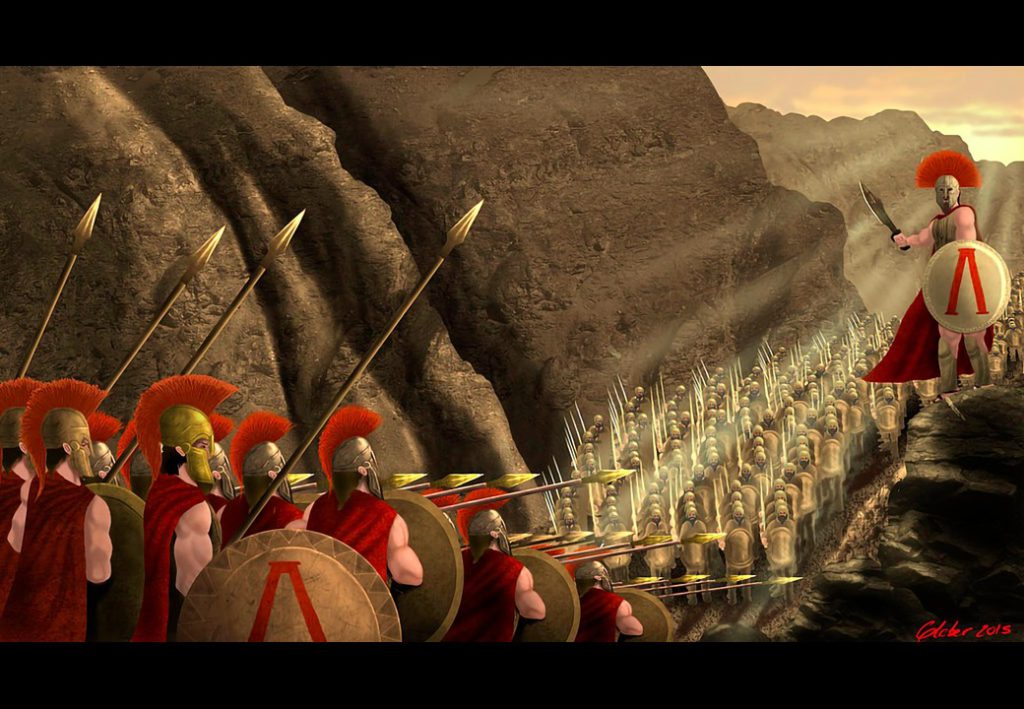The Battle of Thermopylae is perhaps one of the most famous wars in ancient history. Although fought almost 2,500 years ago, it is still honored and remembered as one of the greatest last stands, with countless books, movies, and comics being made in its honor. Although some details have been embellished or disproven, its message remains strong. When the forces of oppression rear its ugly head, there will always be those willing to fight it. No matter how few they might be, they can make a huge difference.
During the 5th Century BCE, the greatest empire of the day was the Achaemenid Persian Empire which stretched from India to the Mediterranean at its peak. One place that had eluded its grip, though was Greece. The Persian king Darius I had attempted to conquer in 492 BCE but was defeated at the Battle of Marathon.
Some twenty years later, his son Xerxes I would try to succeed where his father failed. Gathering troops from all over the empire, he raised an army of almost 300,000 men. With this army, he marched out to conquer Athens and the rest of Greece.
Hearing of this threat, the various Greek cities formed a coalition to try and stop this invasion. This league was led by Athens and Sparta who planned to meet the army at the pass of Thermopylae to try and block their invasion. The army was led by King Leonidas and his guard of 300 men. Together with another 7,000 Greeks, they met the Persians in this narrow pass.
For almost a week, the two sides battled, with thousands of Persian soldiers throwing themselves against the Greek shield wall, trying to break their formations to no avail. They couldn’t use their superior numbers to surround the Greeks, allowing the Spartans to hold their pass.
On the sixth day, the Persians found a secret pass they could sneak their troops through and attack the Greeks from both sides. Seeing this, brave Leonida ordered the rest of the Greek army home, leaving only him, his Spartans, and any volunteers willing to remain. In the end, he and every soldier who remained were slaughtered by the Persians.
After the battle, Xerxes was curious why the Greeks sent such a small force to fight him and had some deserters interrogated. The exchange between these two became almost as famous as the battle itself. For it showed the lesson of this conflict, that the spirits of men fighting as slaves can never match those who fight for freedom.
“There had come to them a few deserters, men of Arcadia, lacking a livelihood and desirous to find some service. Bringing these men into the king’s presence, the Persians inquired of them what the Greeks were doing, there being one who put this question in the name of all.”
“When the Arcadians told them that the Greeks were holding the Olympic festival and viewing sports and horseraces, the Persians asked what the prize offered, for which they contended. They told him of the crown of olive that was given to the victor. Then Tigranes son of Artabanus uttered a most noble saying, but the king deemed him a coward for it.
“When he heard that the prize was not money but a crown, he could not hold his peace, but cried, “Good heavens, Mardonius, what kind of men are these that you have pitted us against? It is not for money they contend but for glory of achievement!” Such was Tigranes’ saying.”
-Herodotus, historian.

If you want to create vintage letters with your own or other people’s famous lines, our Vintage Letter service allows you to make and send them here.

